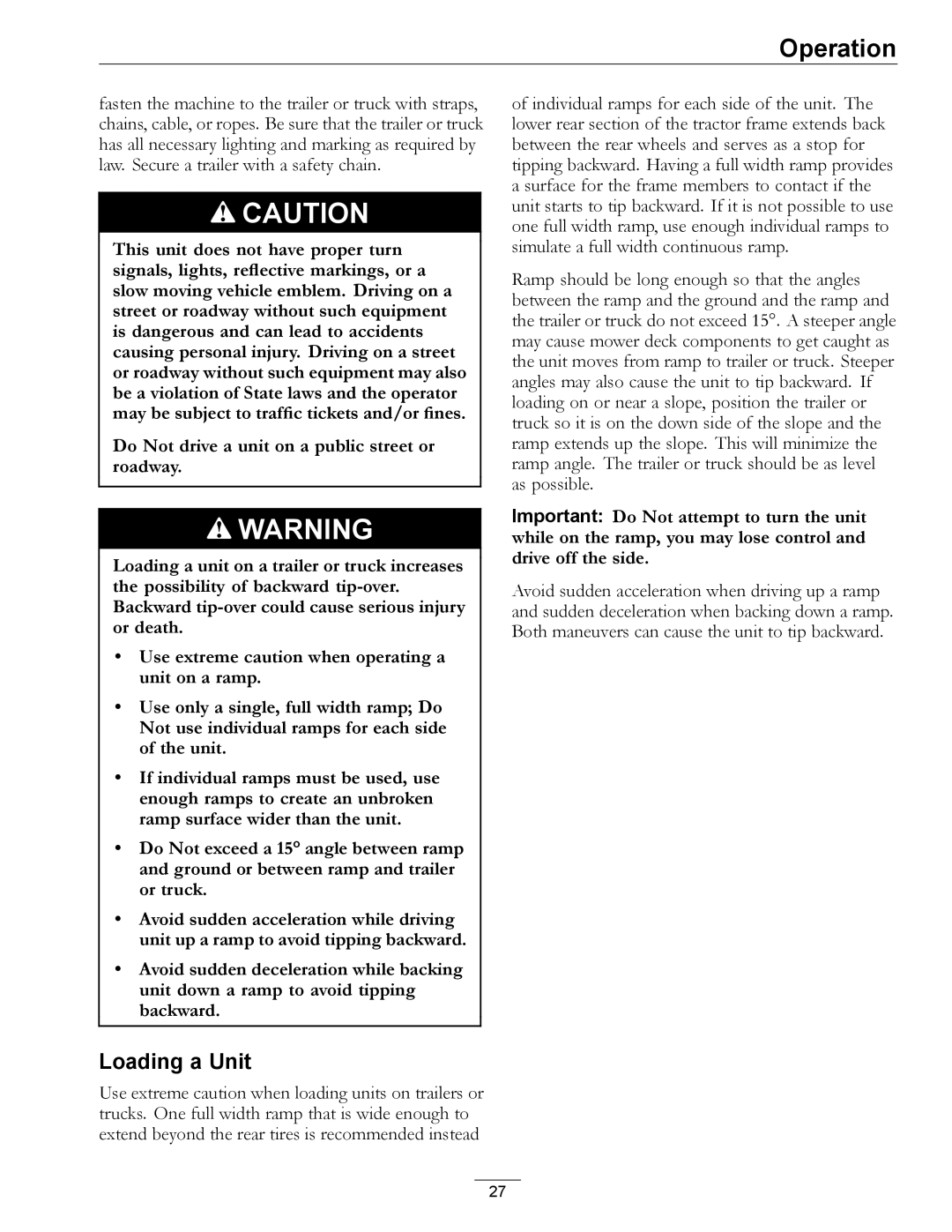
Operation
fasten the machine to the trailer or truck with straps, chains, cable, or ropes. Be sure that the trailer or truck has all necessary lighting and marking as required by law. Secure a trailer with a safety chain.
![]() CAUTION
CAUTION
This unit does not have proper turn signals, lights, reflective markings, or a slow moving vehicle emblem. Driving on a street or roadway without such equipment is dangerous and can lead to accidents causing personal injury. Driving on a street or roadway without such equipment may also be a violation of State laws and the operator may be subject to traffic tickets and/or fines.
Do Not drive a unit on a public street or roadway.
![]() WARNING
WARNING
Loading a unit on a trailer or truck increases the possibility of backward
•Use extreme caution when operating a unit on a ramp.
•Use only a single, full width ramp; Do Not use individual ramps for each side of the unit.
•If individual ramps must be used, use enough ramps to create an unbroken ramp surface wider than the unit.
•Do Not exceed a 15° angle between ramp and ground or between ramp and trailer or truck.
•Avoid sudden acceleration while driving unit up a ramp to avoid tipping backward.
•Avoid sudden deceleration while backing unit down a ramp to avoid tipping backward.
Loading a Unit
Use extreme caution when loading units on trailers or trucks. One full width ramp that is wide enough to extend beyond the rear tires is recommended instead
of individual ramps for each side of the unit. The lower rear section of the tractor frame extends back between the rear wheels and serves as a stop for tipping backward. Having a full width ramp provides a surface for the frame members to contact if the unit starts to tip backward. If it is not possible to use one full width ramp, use enough individual ramps to simulate a full width continuous ramp.
Ramp should be long enough so that the angles between the ramp and the ground and the ramp and the trailer or truck do not exceed 15°. A steeper angle may cause mower deck components to get caught as the unit moves from ramp to trailer or truck. Steeper angles may also cause the unit to tip backward. If loading on or near a slope, position the trailer or truck so it is on the down side of the slope and the ramp extends up the slope. This will minimize the ramp angle. The trailer or truck should be as level as possible.
Important: Do Not attempt to turn the unit while on the ramp, you may lose control and drive off the side.
Avoid sudden acceleration when driving up a ramp and sudden deceleration when backing down a ramp. Both maneuvers can cause the unit to tip backward.
27
